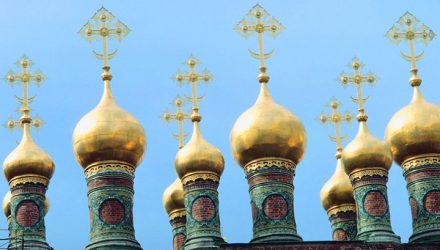The VanEck Vectors Russia ETF (NYSEArca: RSX), the largest Russia exchange traded fund trading in the U.S., is down 7.2% year-to-date, a disappointment following the ETF’s epic 47.2% gain in 2016. RSX’s 2017 struggles are all the more painful when considering the MSCI Emerging Markets Index is higher by more than 19%.
President Donald Trump has acted more friendly toward Russia and Russian president Vladimir Putin. Consequently, market observers are speculating that the Trump administration could be more willing to roll back sanctions placed on Russia in response to its actions against Ukraine.
Alternatives to RSX, also the most heavily traded Russia ETF, include the iShares MSCI Russia Capped ETF (NYSEArca: ERUS), SPDR S&P Russia ETF (NYSEArca: RBL) and the VanEck Vectors Russia Small-Cap ETF (NYSEArca: RSXJ).
Potential political controversy is weighing on RSX and Russian stocks as some market observers “think that is still likely, given the investigations in Washington into Trump dealings with Russian government officials,” reports Daisey Maxey for the Wall Street Journal.
